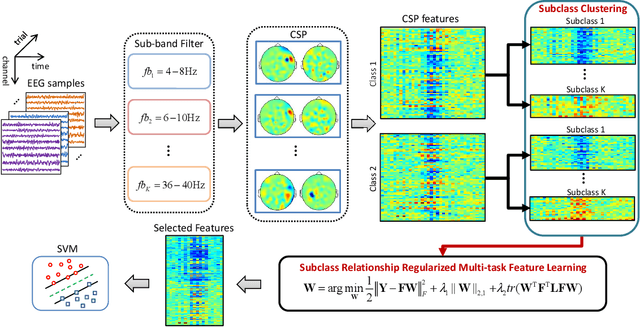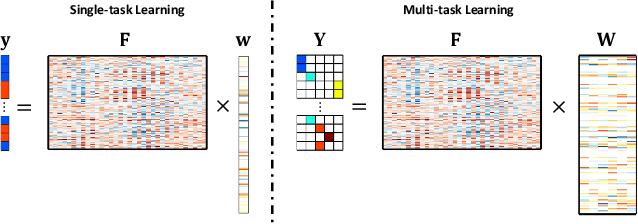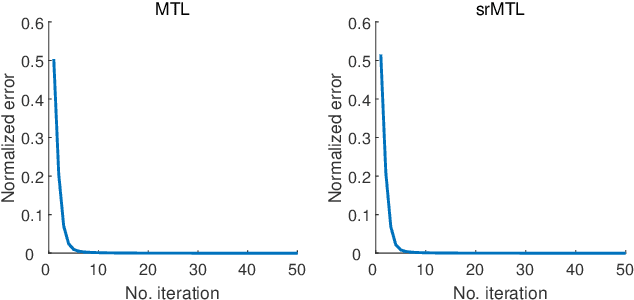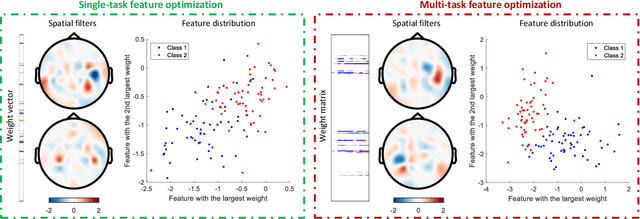Improving EEG Decoding via Clustering-based Multi-task Feature Learning
Paper and Code
Dec 12, 2020



Accurate electroencephalogram (EEG) pattern decoding for specific mental tasks is one of the key steps for the development of brain-computer interface (BCI), which is quite challenging due to the considerably low signal-to-noise ratio of EEG collected at the brain scalp. Machine learning provides a promising technique to optimize EEG patterns toward better decoding accuracy. However, existing algorithms do not effectively explore the underlying data structure capturing the true EEG sample distribution, and hence can only yield a suboptimal decoding accuracy. To uncover the intrinsic distribution structure of EEG data, we propose a clustering-based multi-task feature learning algorithm for improved EEG pattern decoding. Specifically, we perform affinity propagation-based clustering to explore the subclasses (i.e., clusters) in each of the original classes, and then assign each subclass a unique label based on a one-versus-all encoding strategy. With the encoded label matrix, we devise a novel multi-task learning algorithm by exploiting the subclass relationship to jointly optimize the EEG pattern features from the uncovered subclasses. We then train a linear support vector machine with the optimized features for EEG pattern decoding. Extensive experimental studies are conducted on three EEG datasets to validate the effectiveness of our algorithm in comparison with other state-of-the-art approaches. The improved experimental results demonstrate the outstanding superiority of our algorithm, suggesting its prominent performance for EEG pattern decoding in BCI applications.
 Add to Chrome
Add to Chrome Add to Firefox
Add to Firefox Add to Edge
Add to Edge